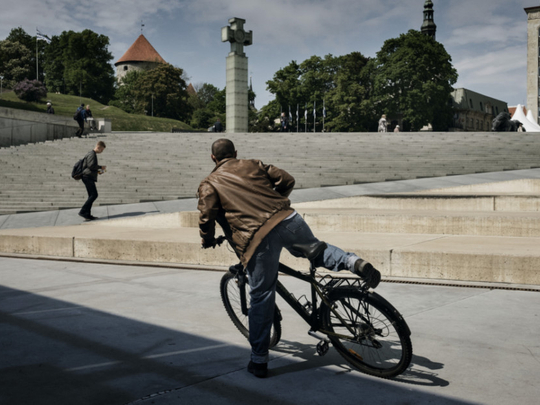
Tallinn, Estonia: Abdul Qader was about 17 - an overweight Yemeni teenager suspected of being a terrorist - when the US military brought him to Guantanamo. When he left, he was past 30, his hair thinning, and about to start a new life in Estonia.
But the past, he soon realised, was not so easy to escape. Snow was falling, and he was eager to touch it. He started for the door, then suddenly panicked, fearful that something - he was not sure what - could go wrong if he went outside.
“Any trouble I get myself in now - even an honest mistake - will be a hundred times worse than if any normal person did it,” he said.
“I cannot live my life regularly. I try, but it is like part of me is still at Guantanamo.”
Abdul Qader was arrested with about a dozen other Arabs at a guesthouse in Pakistan in March 2002. Pakistani police also raided another guesthouse in the same city, capturing a prominent terrorism suspect, Abu Zubaidah.
Police conflated the two houses, saying both harboured what were thought to be cells of Al Qaida.
Abdul Qader was transferred to US custody, and that June, he was flown to Guantanamo. He vividly recalls the “long, long, long” flight to Cuba - limbs immobilised, eyes and ears blocked, destination unknown.
An Estonian doctor is treating him for ligament damage in his knees and shoulder - the result, he said, of treatment like being kicked into the kneeling position.
He told interrogators that after completing the ninth grade in Yemen in 1999, he had traveled to Pakistan intending to study religion and computers, and to do charitable relief work. He also crossed into Afghanistan, where he said he met several Taliban members. Reports summarising his early interrogations say he was “issued” a rifle and “trained” to use it. Abdul Qader, claiming translators had put an exaggerated gloss on his words, told me a Taliban member spent a few minutes showing him how to hold a rifle, and he never “owned” one or enlisted to fight with any group.
“As unusual as this source’s story sounds, I don’t think he is hiding the truth,” an interrogator wrote about Abdul Qader in January 2003.
While Abdul Qader spoke with optimism about his new life, he often lapsed into despondency about his separation from his family, his lost youth, and his “hurt” when people call him a terrorist. He portrayed himself as paralysed by anxiety about what society will assume about him.
“Thirteen years of my life I wasted, and it’s not because of something I did,” he said. “It’s because something went wrong around me, and I got the blame for it.”
“I think I will never be free until I get my name cleared. I will always be ‘that guy who was in Guantanamo.’”












